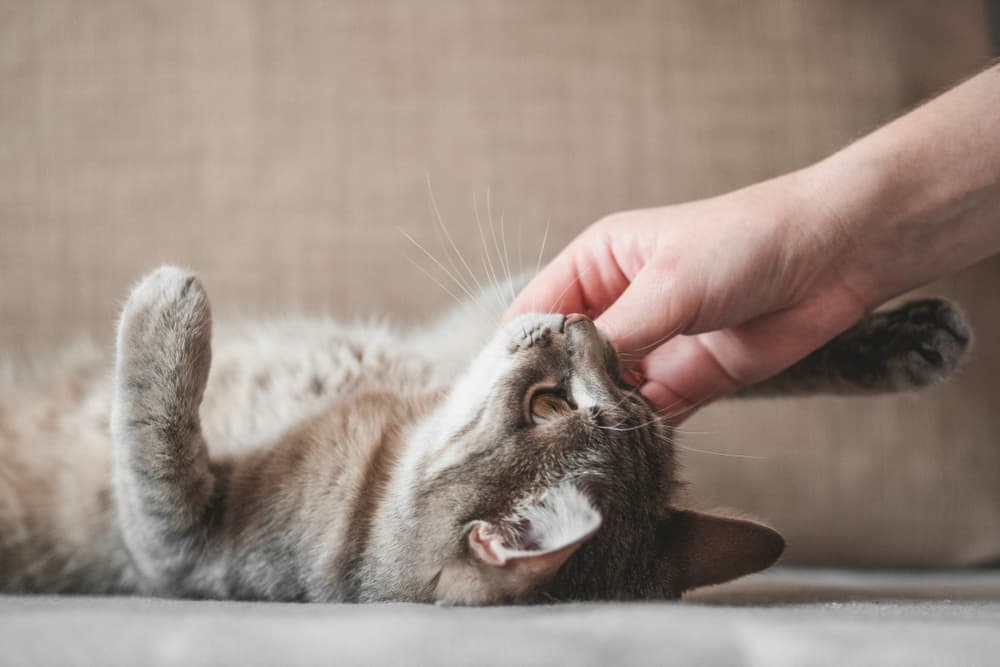How Long Do Cats Live?

One deciding factor for families who are considering cat adoption is that felines tend to live longer than their canine counterparts. In fact, I’ve even had clients adopt a cat with the hope that the old wives tale of a cat having “nine lives” is actually true! Wouldn’t that be wonderful?
What IS true is that our domestic cats today are living much longer and healthier lives, allowing the human-animal bond to strengthen and provide immense joy to families.
Let’s dive into how long cats live, if it matters if they live indoors or outdoors, and more about life expectancies based on the different breeds.
How Long Do Cats Live?

Determining how long cats live is not as black and white of a question as we tend to think. There are many factors that play a role in the lifespan of a cat, including his or her environment (i.e. living indoor versus outdoor), diet, genetics, chronic health conditions, whether the cat is spayed or neutered, and even if he or she is purebred versus a mixed breed.
Taking into account all of these variables, the average lifespan of a cat is approximately 15 years, with a majority of our cats living between 10 to 20 years.
How Long Do Indoor Cats Live?
Your cat’s environment can affect how long your feline lives. Indoor cats tend to live an average of three times longer than outdoor cats. This is mainly because indoor cats typically face much less risk of disease from parasites and dangers such as getting hit by a car or being attacked by other animals.
Indoor cats also tend to be fed more regularly with high-quality nutrition, have access to water and stable shelter, and receive regular vaccinations to help prevent infectious disease.
While the studies that have been done vary slightly in results, indoor cats live on anywhere from 14 to 20 years, with the average being 16.875 total years.
How Long Do Outdoor Cats Live?

Outdoor cats, unfortunately, have a much shorter lifespan. They are more at risk of disease from fleas and ticks, have more interactions with other cats causing bites and scratches, and have more accidents and traumas than indoor cats.
Outdoor cats also have to handle severe weather, threats from wildlife and other predators, and even periods of starvation or lack of clean water sources. Because of all of these factors, outdoor cats have a much more limited lifespan of 3 to 10 years, with the average being 5.6 total years.
Cat Life Expectancy By Breed

Besides environment, breed differences can also affect lifespan. Certain breed characteristics, such as length, weight, skeletal development (or lack thereof), anatomy of their nose and respiratory tract and the genetics of the parents and other predecessors can greatly affect how long a certain breed of cat will live and what types of disease are most likely.
Here are some of the more common purebred cat breeds and their associated average lifespan and reasons behind it:
| Cat Breed | Average Lifespan | Risk Factors for Disease |
| Siamese | 11-15 years | dental and respiratory disease |
| Maine Coon | 9-15 years | heart disease, hip dysplasia, cystic kidney disease |
| Bengal | 10-16 years | heart and eye disease, hip dysplasia |
| Persian | 10-15 years | respiratory disease, digestive issues, cystic kidney disease |
| Ragdoll | 12-17 years | heart disease and bladder stones |
| Sphynx | 8-14 years | heart and skin disease, neurological issues |
| Bombay | 12-16 years | respiratory and heart disease |
| Himalayan | 15+ | respiratory disease, cystic kidney disease/failure |
| American Shorthair | 15-20 years | heart disease |
| Manx | 8-14 years | spine issues and severe constipation |
Cat Life Expectancy by Health Condition

We’ve looked at the environment and your cat’s breed as two important factors in the lifespan of a cat. But we also know that the cat’s overall health and any pre-existing or chronic health conditions can play a significant role in limiting that cat’s quantity and quality of life.
While some diseases like periodontal (dental) disease can be resolved through an oral health procedure where the teeth are cleaned above and below the gum and any diseased teeth are identified by X-rays and extracted, other diseases are progressive and irreversible like kidney disease.
Here are some of the more common disease conditions that we identify in cats and what factors can also affect a cat’s lifespan:
| Cat Health Condition | Average Lifespan from Time of Diagnosis | Influencing Factors |
| FIV | 2 to 10 years | Depends on lifestyle, nutrition, parasite control, monitoring and concurrent illness |
| Diabetes | variable | Depends on many factors including other concurrent diseases, ability to regulate blood sugar and parent involvement |
| Hyperthyroidism | variable | Depends on type of treatment, age at time of diagnosis, and any concurrent illness |
| Kidney Disease | 1 to 5 years | Depends on if diagnosis was early, nutrition, aggressiveness of therapy and concurrent illness |
| Asthma | Usually normal lifespan of 10 to 16 years | Depends on if cat receives regular inhaler treatment, triggers are avoided, and seek help at first signs of attack |
| Anemia | variable | Depends on if anemia is treatable (normal lifespan) versus if cause is not identified |
| Heart Disease | 6 months to 2 years | Depends on if early or late diagnosis, specific type of disease, medications used and any concurrent illness |
| Heart Murmur | variable | Depends on the type of murmur, if associated with disease and concurrent illness |
| Renal Failure | 35 to 60 days | Depends on aggressiveness of therapy and concurrent illness |
| Feline Leukemia | 2 to 3 years | Depends on concurrent illness and genetics |
How to Help Your Cat Live Longer

Keeping in mind all of these risk factors, there are a few other strategies that can help keep your cat healthy and happy for as long as possible. Follow these tips to help your cat live longer.
Keep your cat indoors. Just this one adjustment can increase your cat’s lifespan and help them live (on average) three times longer.
Schedule annual veterinary appointments. Make sure to see your veterinarian annually to discuss and receive the appropriate preventative vaccinations for your cat’s lifestyle.
Keep cats on parasite protection. Keep your cat protected from unwanted parasites like fleas, ticks and mosquitoes that transmit disease by administering a monthly heartworm and parasite preventative.
Watch your cat’s nutrition. Feed a high quality, approved diet for the best nutrition.
Enrich your cat’s environment. Provide a feline-friendly home with enrichment, activity and daily exercise to help stimulate good mental and emotional health.
Observe your cat’s behavior. Learn about your cat’s body and tail language and see your veterinarian if there are any subtle changes. Cats are stoic and masters at hiding disease and pain.
Your veterinarian is always your best and most trusted resource to answer any questions and concerns about your fabulous feline.









